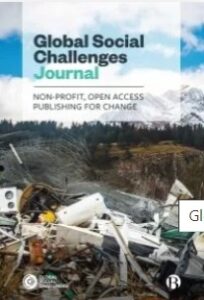Shallow pedagogies as epistemic injustice: how uncritical forms of learning hinder education’s contribution to just and sustainable development
| Year | : | 2024 |
|---|---|---|
| Author/s | : | Maria Balarin, María Fernanda Rodríguez |
| Area/s | : | Education and learning |
Balarin, M. y Rodríguez, M. F. (2024). Shallow pedagogies as epistemic injustice: how uncritical forms of learning hinder education’s contribution to just and sustainable development. Global Social Challenges Journal, 3(1), 49-67. https://doi.org/10.1332/27523349Y2024D000000007
This paper draws on findings from the JustEd study to discuss the shallow pedagogies that have emerged in Peru in the context of learner-centred and outcomes-based reforms that have been poorly implemented in a context with many limitations in terms of policy orientations, resources, and teacher training and support. These pedagogies promote little to no critical thinking, are disconnected from students’ experiences and do not encourage them to problematise reality nor to grasp complexity. Such pedagogies constitute a form of epistemic injustice in that they do not help to develop students’ capacity to participate as equals in the consumption and production of knowledge. Through this, these pedagogies also limit education’s potential contributions to justice, peace and sustainability. Our discussion of shallow pedagogies leads us to articulate some more positive elements of what rich and just pedagogies might entail.







